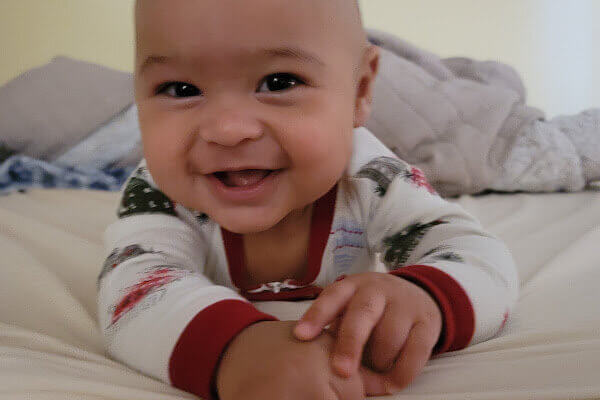By Nicole Pelletiere
Stranger anxiety amongst children can be frustrating for both parents and babies alike. In these cases the child is typically comfortable with Mommy, Daddy, and caregiver only, but why exactly does stranger anxiety occur within children? “It has to do with an attachment to the parent,” says licensed clinical psychologist, Dr. George Sachs of The Sachs Center in NYC, whom specializes in the evaluation and treatment of children, teens, and adults.
The severity of the problem depends on the age of the child. According to the Secrets of Baby Behavior Blog, stranger anxiety doesn’t completely go away, but will lessen by 18 to 24 months old. Before this age is what Dr. Sachs refers to as “the normal period”.
Babies can have anxiety when surrounded by unfamiliar people. Unfortunately, those people can even be their own extended family members. Nonetheless, children have a strong attachment to their parents, and may not always trust every person that they are exposed to.
This may become a bit upsetting to you as a parent. It is exciting to introduce your little one to new people, but it is even more exciting when your child reacts positively.
Dr. Sachs states that when a child reacts in a negative manner it is typically due to over-stimulation, or too much exposure. “The best thing to understand is that it is normal and to not force your child to engage” he says. “The problem is if the parent is anxious and pushes, it will then heighten the problem.”
We must understand that other people do not know your child the way you do, as you are the ones that spend the most time them. Do not get discouraged in the event of a melt-down, for it is best to try and calm them down. If you are less anxious, they may begin to feel that it is safe to approach.
Children that are extra sensitive to strangers need to take things one step at a time. An idea would be to accompany your child when engaging them in various activities.
For example: story time, the park, play school, time with different babysitters, and play-dates, may assist you in easing them into certain situations. With you they will feel safe and comfortable; maybe even comfortable enough to engage in their surroundings. By letting your child move at their own pace you will be taking the safe-route, or the route of less melt-downs!
Also, creating a photo album of unfamiliar friends and family is a great tactic for them to be introduced, and become acquainted with those that may be important in their lives.
As Dr. Sachs stated, please remember that a sure-fire way to help your child to overcome stranger anxiety is time. Don’t forget that even though your child may be growing, a language barrier still exists. When he or she is able to talk more, they will be able to understand–thus having the ability to communicate their feelings with you. So, with step-by-step exposure, time, and patience, your child will be less anxious, and a little more accepting to those who are unfamiliar to them.
If you are calm, they will calm down–and remember that this too shall pass!
Nicole Pelletiere is a writer based on Long Island, New York. She created her blog The Nifty Nanny to connect with parents and caregivers, share stories, arts and crafts ideas, and to explore her love for children’s literature. She also studies the development of infants and toddlers to satisfy her keen interest in child psychology.
Stranger anxiety amongst children can be frustrating for both parents and babies alike. Learn how to tackle stranger anxiety with these useful tips.



